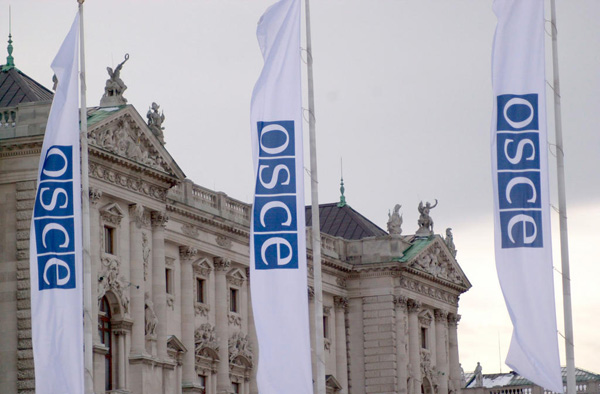COPENHAGEN, 29 November 2016 – Welcoming the unveiling of a giant new dome being placed over Chernobyl nuclear power plant’s fourth reactor in Ukraine – the site 30 years ago of the worst accident in the history of nuclear power in the world – the leadership of the OSCE Parliamentary Assembly’s General Committee on Economic Affairs, Science, Technology and Environment today issued the following statement:
“On behalf of the OSCE Parliamentary Assembly’s economic and environmental committee, we welcome this massive collective effort to make Chernobyl safe. The enormous metal structure being placed today over the nuclear power plant’s failed fourth reactor will not only help ensure the safety of Ukraine and generations to come across Europe, it is also a symbol of the international commitment to address the continued legacy of this tragedy even today, three decades after the 1986 Chernobyl disaster.
“While we should never forget the tragic disaster 30 years ago, we hope that this dome not only shields future generations from radiation leaks, but also helps bring to a close once and for all the tragic chapter of the Chernobyl disaster.”
The joint statement was issued by Nilza Sena (MP, Portugal), Artur Gerasymov (Ukraine), and Marietta Tidei (MP, Italy), the committee’s Chair, Vice-Chair, and Rapporteur, respectively.
A resolution that the committee adopted last July at the OSCE PA’s Tbilisi Annual Session, noted that “30 years after the Chernobyl disaster, its lessons are still being learned, and this year’s anniversary reminds us about the enormous responsibility towards current and future generations to ensure that accidents like Chernobyl and Fukushima never happen again.”
The resolution, which was principally sponsored by Viktor Guminsky (MP, Belarus), further underlined that “despite efforts undertaken to minimize the negative consequences of the Chernobyl disaster, there are ongoing environmental challenges and their solution requires the use of advanced modern technologies.” The resolution stressed that “co-operation of international institutions, national governments, and non-governmental organizations must be aimed at long-term solutions to the complex problems triggered by the Chernobyl disaster.”
It also emphasized the need to continue Chernobyl recovery efforts at national and international levels “to mitigate the health, environmental, social, and economic consequences of the disaster, as well as to facilitate restoration and development of the affected areas.”
OSCE PA Communications and Press






















































